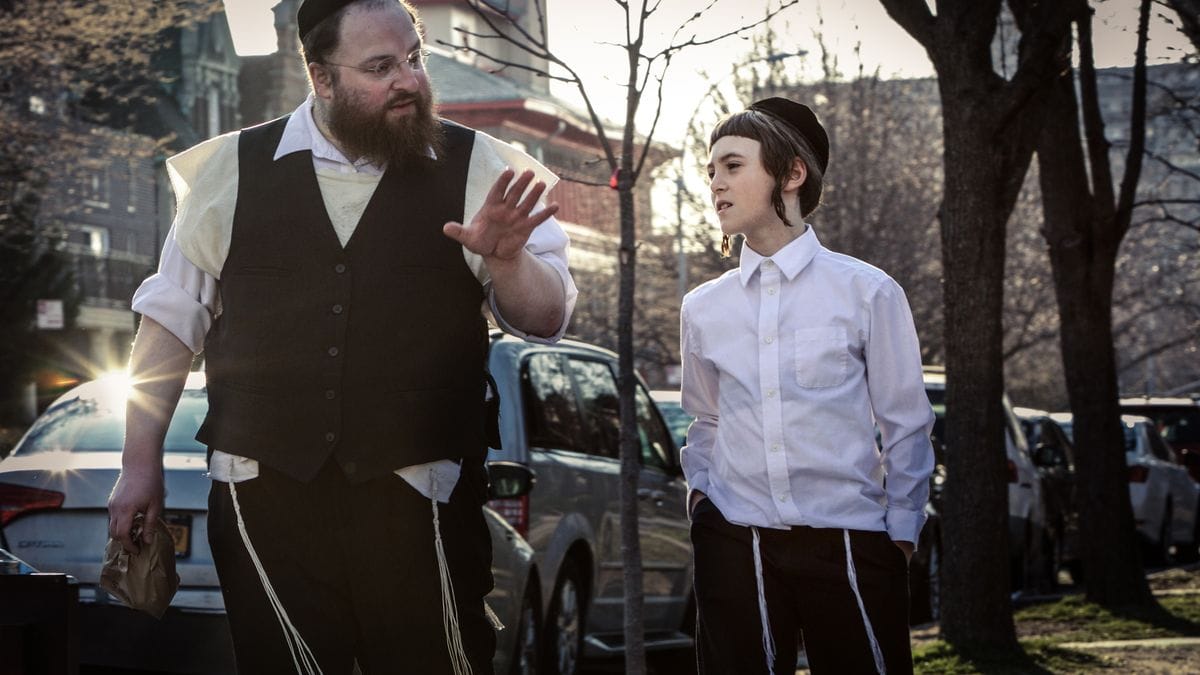Menashe: The Clash of Faith and Fatherhood in Hasidic Brooklyn
Menashe explores the intricacies of Hasidic faith and fatherhood with great depth, empathy, and perhaps even a hint of criticism.

"Menashe," a heartfelt and nuanced portrayal of life within Brooklyn's Hasidic Jewish community, resonates deeply with me, both as a New Yorker and someone perennially fascinated by the insular yet rich tapestry of Hasidic traditions and lifestyle. This film, directed with a delicate touch by Joshua Z. Weinstein, offers a rare glimpse into a world parallel to the vibrant streets of Brooklyn, known more for its eclectic mix and modernity than its pockets of traditionalism.
Inside Brooklyn's Hasidic Community Through ‘Menashe’
Set almost entirely in Yiddish, the movie tells the story of Menashe (played with a raw authenticity by Menashe Lustig), a recently widowed grocery clerk striving to regain custody of his son, Rieven, against the backdrop of community norms and expectations. What sets "Menashe" apart is its exploration of faith and fatherhood and its intimate portrayal of Hasidic life, which is seldom depicted in mainstream cinema with such depth, empathy, and perhaps criticism.
As someone who has walked these same streets but observed the Hasidic community from a respectful distance, "Menashe" feels like an invitation into its people's living rooms, synagogues, and souls. It's a narrative that unfolds with a realism that's both enlightening and moving, devoid of the exoticization or sensationalism that often accompanies outsider perspectives on closed communities. The film's commitment to authenticity — from its Yiddish dialogue to the meticulous depiction of rituals and attire — adds layers of richness and complexity, making the viewing experience profoundly immersive.
The Universal Appeal of ‘Menashe’: Faith, Fatherhood, and Freedom
The storyline, centered around the universal themes of loss, parenthood, and the search for acceptance, allows viewers to connect with Menashe's struggles and aspirations on a human level. His journey is one of resilience, peppered with moments of tender vulnerability and quiet defiance against a culture that, while deeply rooted in tradition, often appears stifling through the lens of personal freedom and individuality.
I felt pride and curiosity while watching "Menashe" as a New Yorker. I am proud because this story is a testament to New York City's diversity — a place where worlds within worlds coexist, each with its own stories and struggles. I am curious because the film invites us to question and contemplate the balance between community and individuality, tradition and change, while offering a compassionate portrayal of a man navigating these crossroads.
In essence, "Menashe" is more than just a film about a Hasidic father and his son; it's a window into a community that, despite its geographic proximity, remains a mystery to many. Through its specificity, it's a narrative that speaks to broader themes of love, faith, and the complexities of adhering to one's traditions in the modern world. For someone like me, intrigued by the Hasidic community yet outside of it, "Menashe" is a profoundly affecting experience — one that bridges worlds and, in doing so, enriches our understanding of our neighbors and, ultimately, of ourselves.

